Unfinished at the time of his death, Georg Büchner’s play ‘Woyzeck’ is nonetheless one of the most widely performed and critically acclaimed theatrical works in the German language. It has been adapted as an opera by Alban Berg and a musical by Robert Wilson and Tom Waits, subjected to numerous TV adaptations, and filmed by Giancarlo Cobelli (1973), Werner Herzog (1979), Guy Marignane (1993), János Szász (1994) and Álvaro Olavarría (2004).
Herzog made his version just days after ‘Nosferatu’ wrapped, using the same cast and with Kinski once more in the title role. (It’s interesting to note that all of their collaborations take their title from the protagonist’s name.) ‘Woyzeck’ was shot in eighteen days and edited in five. The finished product is simultaneously one of Herzog’s most formal and most experimental films.
The reason for this – and also the reason it was made so quickly – is that the film, which clocks in at a scant eighty minutes, consists of just twenty-seven cuts. That’s an average of one cut every three minutes. As opposed to your average Hollywood film which probably cuts every ten or fifteen seconds. (Or every three if you’re Michael Bay and pandering to a core audience with an MTV attention-span.)
This sometimes makes for a very theatrical viewing experience (curious given Herzog’s declaration that he detests the falsity of theatre), such as an early scene where Woyzeck shaves his captain while the old duffer spouts about morality, brow-beating Woyzeck for his lack thereof. Movement is minimal. The captain has virtually all the dialogue and remains a static figure throughout. Woyzeck bustles about him but is ordered to slow down, not to take life so hurriedly. The sequence slips into a strangely compelling torpor.
The contrast, then, is that much greater when, in a later scene – played out in its entirety in one take – Woyzeck confronts his faithless consort Marie (Eva Mattes). Kinski flings himself around the screen like a man possessed (which, basically, is what Woyzeck is), the camera whipping after him, edging in, pulling back, almost seeming alternately to probe towards and then retreat from him. It’s such a dynamic scene, so powerfully acted (and not just by Kinski – Mattes won a richly deserved Best Actress award at Cannes) that you forget it’s unedited.
Woyzeck, a peasant enlisted as a private in the army, supplements his pay by barbering for the captain and undergoing medical experiments for a doctor whose interest in the physical effects of extreme situations extends to throwing a cat out of the window and ordering Woyzeck to exist solely on a diet of peas. While his time is occupied in these pursuits, Marie conducts an affair with the battalion’s unrepentantly macho drum major.
In essence then, Woyzeck is the poor man, the little man, beset on all sides by a society who will always oppress him. The captain, corpulent and self-satisfied, represents wealth, greed, social standing and the hypocrisy that comes with it. The doctor embodies scientific enquiry at the cost of humanitarianism. The drum major, built like a brick outhouse and strutting his stuff before the town’s female populace, is a study in pride, arrogance and superficiality. He’s little more than a gigolo and, as such, complements Marie, whose easy virtue robs Woyzeck of the one thing he tries desperately to cling onto: her affection.
Naturally, it all ends badly. When Woyzeck finally loses his grip on reality, Herzog lifts from the film its structural formalism and renders Woyzeck’s climactic act of violent madness in Peckinpah-like slo-mo. (The opening credits sequence, in which Woyzeck comes sprinting round the side of his barracks, harangued by his drill sergeant, the footage speeded up, neatly prefigures this.)
I found ‘Woyzeck’ difficult the first time I saw it. The film seemed longer than its eighty minutes. I found the dialogue non-naturalistic (Büchner’s fragment was written in 1837) and the catalogue of Woyzeck’s miseries almost depressingly inevitable. The scope and the evocation of landscape that had so enthralled me in other Herzog films were missing.
Subsequently, even though it’s still considerably down the list in terms of my most watched Herzog DVDs, I’ve realised that just as the film opens and closes with a melancholy theme played by a string quartet, ‘Woyzeck’ is essentially a chamber piece. And it’s Kinski – haunted, harried, driven to desperation – who claws at the very fabric of the film with the immediacy of his performance.
Subscribe to:
Post Comments (Atom)
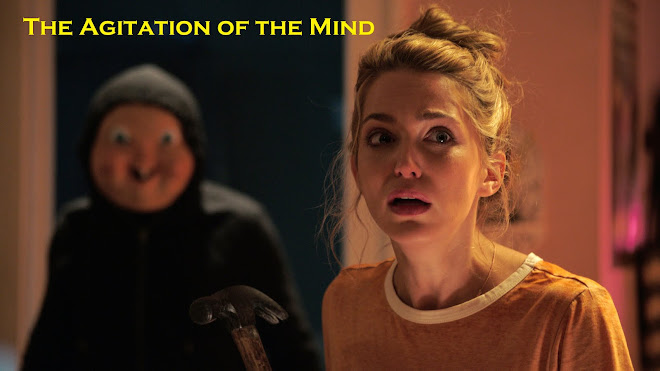
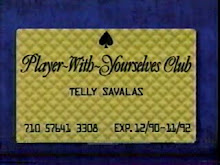
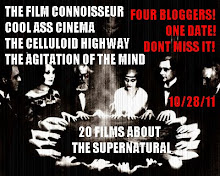
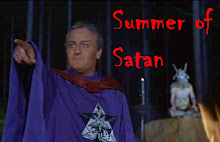
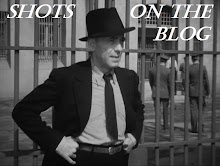

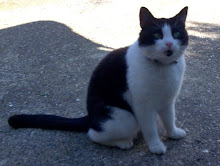








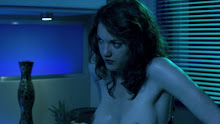
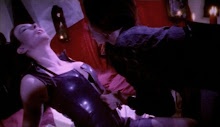





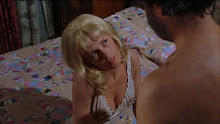
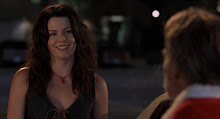

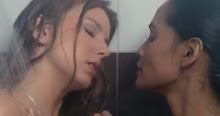






No comments:
Post a Comment